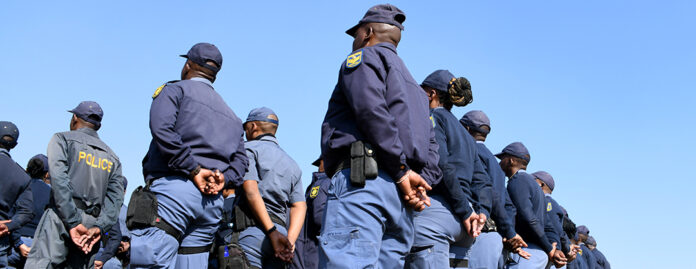Lt-Gen Nhlanhla Mkhwanazi’s inflammatory assertion that raising police salaries and meeting other union demands are the primary drivers of the crime crisis represents a dangerous deflection from the real culprits behind the country’s security breakdown.
His stark proposition that “higher wages mean fewer jobs” has ignited a firestorm precisely because it misdiagnoses the disease while attacking the symptoms.
The KwaZulu-Natal (KZN) police commissioner’s comments at Premier Thami Ntuli’s crime prevention engagement reveal a troubling tendency among senior officials to scapegoat organised labour for systemic failures decades in the making.
When Mkhwanazi declares that “the population of KZN is growing, but the number of police officers is going down, thanks to the unions,” he fundamentally misunderstands or deliberately obscures the true dynamics at play.
Trade union leader Zwelinzima Vavi’s response cuts to the heart of the matter: “Budget cuts, not wage demands, are the real crisis.” The South African Federation of Trade Unions’ general secretary correctly identifies that the South African Police Service operates at approximately one officer per 423 citizens, falling catastrophically short of global benchmarks.
This is not the result of excessive salaries but of austerity measures that have hollowed out public services. The country has witnessed underfunding of police services through a 9% budget cut that Vavi demands be reversed.
This is not about unions being greedy; it is about a government that has prioritised fiscal restraint over public safety while simultaneously enabling the haemorrhaging of billions through corruption.
Critics on social media platforms have correctly identified the core issue: rampant government corruption that has drained resources that could have doubled the police force.
The R500-billion Covid-19 expenditure and R700-million National Dialogue represent just the tip of an iceberg that has systematically robbed public services of essential funding.
Had these funds been managed well, as N Cele argued on X, there would be more than adequate resources for competitive salaries and expanded recruitment.
Mkhwanazi’s deflection serves political purposes by shifting blame from leadership failures onto working-class union members fighting for basic dignity.
This misdirection is particularly galling when considering that police officers risk their lives daily for what many describe as “peanuts” in an economy where living costs spiral upward relentlessly.
The debate on X exposes a fundamental paradox in South African policing philosophy. Zol_Kat frames the dilemma starkly: “Should we accept a small force of adequately paid officers or a large force of underpaid officers vulnerable to corruption?”
Mkhwanazi’s position implicitly argues for the latter, ignoring overwhelming evidence that professional policing demands professional compensation.
When officers cannot meet basic living expenses, the temptation for corrupt practices increases exponentially.
The combative responses from the South African Policing Union and Cosatu reflect more than defensive positioning; they expose fundamental disagreements about public sector priorities. Lesiba Thobakgale’s call for Mkhwanazi to “stay in his lane and focus on fighting crime”, underscores how the commissioner’s comments have fractured the relationship between police leadership and rank-and-file officers.
Perhaps the most damning indictment of current policies is Vavi’s revelation that private security now employs 2.7-million registered guards, outnumbering police and the military combined.
This represents a complete failure of public safety provision, creating a two-tier system where only the wealthy can afford protection.
This privatisation of security does not result from excessive police salaries but from the systematic underfunding and demoralisation of public law enforcement. When the state fails to provide adequate security, market forces fill the vacuum, but only for those who can pay.
Professional policing requires both competitive salaries and adequate staffing levels. Countries with effective law enforcement do not achieve success by impoverishing their officers but by investing comprehensively in public safety.
Until we stop pitting poverty wages against public safety and start demanding both adequate funding and clean governance, citizens will continue paying the ultimate price for political failures that prioritise fiscal conservatism over human security.
• Qaba is a PhD scholar and works in communications in government



